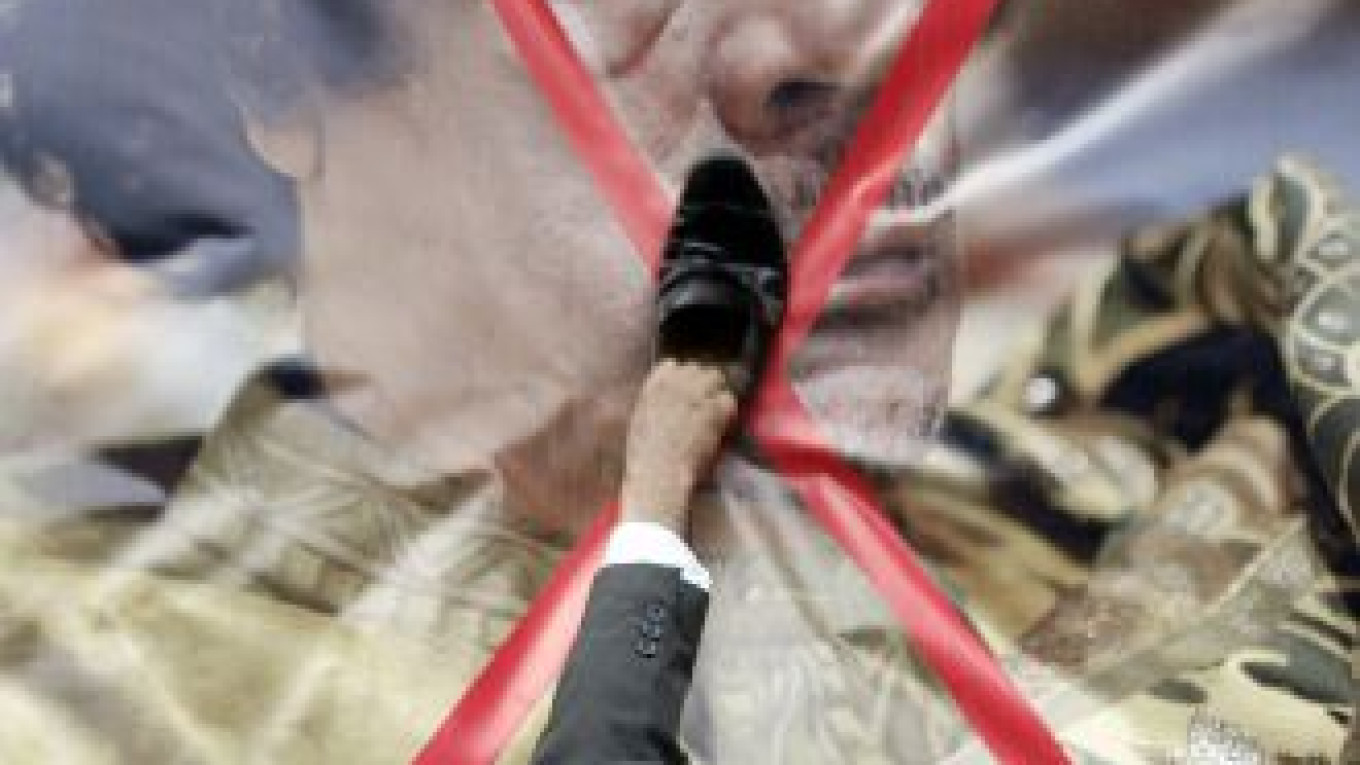The Foreign Ministry said Monday that it hopes a seizure of power by rebels will end Libya’s bloodshed and warned against foreign interference in the internal affairs of the north African state.
“The dramatic turn of events in the Libyan conflict bears witness, by all signs, to a shift of power into the hands of the rebels very soon,” the ministry said in a statement.
“We hope that this will bring an end to the drawn-out bloodshed between Libyans, which has brought so much misfortune and suffering to the population of the country and caused serious damage to its economy,” it said.
Libyan leader Moammar Gadhafi himself was a hunted man on Monday as loyal remnants of his forces made a last-ditch stand in the capital and world leaders embraced the fractious Libyan rebels as new masters of the oil-rich country.
Nearly 48 hours after a pincer thrust on Tripoli by the irregular rebel armies, launched in tandem with an uprising in the city, Gadhafi’s tanks and sharpshooters appeared to hold only small areas, including his Bab al-Aziziya headquarters.
Civilians, who mobbed the streets late on Sunday to cheer the end of dictatorship, stayed indoors as gunfire crackled. Gadhafi’s prime minister showed up in Tunisia. State television went off the air, and rebels said they had seized its transmitters.
More Libyan embassies abroad hoisted the rebel flag.
Russia supported an initial United Nations Security Council resolution imposing sanctions on Gadhafi and his government, but Russia abstained from a second resolution in March that allowed Western military intervention.
Russia, which had billions of dollars worth of energy, arms and infrastructure deals with Gadhafi’s government, has accused NATO forces carrying out air strikes of overstepping their mandate to protect civilians and taking sides in the civil war.
In Moscow, the Foreign Ministry said that other countries should help protect Libyan civilians and help them establish a lawful government when the bloodshed is over, but must not interfere.
“One of the important lessons of the Libyan conflict is that in the conditions of civil conflict in a sovereign country, all members of the international community must conduct themselves with a maximum of restraint and responsibility,” it said.
“In the context of the current events we call on all states to … refrain from interference in Libya’s internal affairs and provide practical support in protecting the civilian population and the establishment of lawful authorities in the country,” the ministry said.
With Gadhafi’s whereabouts unknown, President Dmitry Medvedev’s Africa envoy, Mikhail Margelov, reiterated that Russia would not give him refuge.
“We will not take in Gadhafi or his sons or those who have blood on their hands,” Margelov told Ekho Moskvy radio.
Meanwhile, Italian oil company Eni led the charge back into Libya on Monday as rebels hailing the end of Gadhafi’s rule warned Russian and Chinese firms that they may lose out on lucrative oil contracts for failing to support the rebellion.
“We don’t have a problem with Western countries like the Italians, French and U.K. companies. But we may have some political issues with Russia, China and Brazil,” said Abdeljalil Mayouf, information manager at Libyan rebel oil firm AGOCO.
The comment signals a potential setback for those countries that opposed tough sanctions on Gadhafi or pressed for more talks and would leave European and U.S. companies to capture billions of dollars worth of oil exploration and construction contracts in the OPEC-member nation.
Before the war, Libya produced about 2 percent of global oil output, or 1.6 million barrels per day, and has reserves to sustain that level of production for 80 years.
Russian companies, including oil firms Gazprom Neft and Tatneft, also had projects worth billions of dollars in Libya. Brazilian firms such as Petrobras and construction company Odebrecht were also in business there.
“We have lost Libya completely,” said Aram Shegunts, director general of the Russia-Libya Business Council. “Our companies will lose everything there because NATO will prevent them from doing their business in Libya.”
A Message from The Moscow Times:
Dear readers,
We are facing unprecedented challenges. Russia's Prosecutor General's Office has designated The Moscow Times as an "undesirable" organization, criminalizing our work and putting our staff at risk of prosecution. This follows our earlier unjust labeling as a "foreign agent."
These actions are direct attempts to silence independent journalism in Russia. The authorities claim our work "discredits the decisions of the Russian leadership." We see things differently: we strive to provide accurate, unbiased reporting on Russia.
We, the journalists of The Moscow Times, refuse to be silenced. But to continue our work, we need your help.
Your support, no matter how small, makes a world of difference. If you can, please support us monthly starting from just $2. It's quick to set up, and every contribution makes a significant impact.
By supporting The Moscow Times, you're defending open, independent journalism in the face of repression. Thank you for standing with us.
Remind me later.


